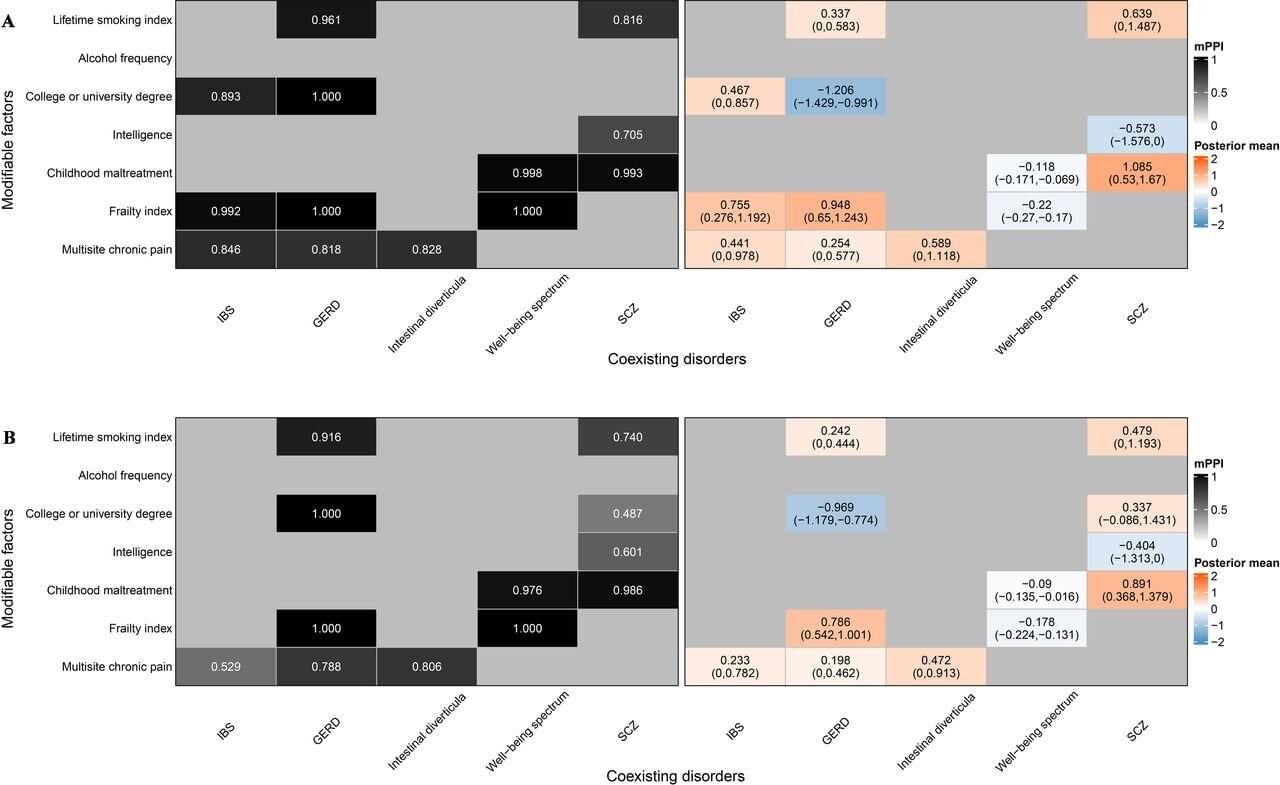Irritable bowel syndrome (IBS) is a prevalent and debilitating gastrointestinal disorder affecting approximately 5%–10% of the global population. Characterized by abdominal pain, bloating, and altered bowel habits, IBS imposes a significant burden on quality of life and health care systems worldwide.
Despite its prevalence, the exact pathogenesis of IBS remains elusive, and effective prevention strategies are lacking. Di Liu and colleagues conducted a comprehensive Mendelian randomization (MR) study—an approach that uses genetic variants as instrumental variables to infer causality.
The study integrates Mendelian randomization (MR) and multiresponse MR (MR2) analyses to distinguish genuine causal relationships from shared or spurious associations. The research is published in the journal eGastroenterology.
